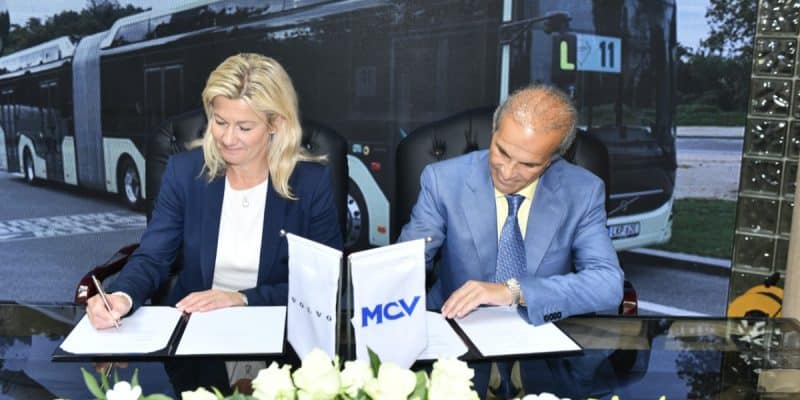At a time when the European electric vehicle market is booming, Swedish manufacturer Volvo Cars and Egypt's Manufacturing Commercial Vehicles (MCV) have agreed to manufacture electric bus bodies for export to Europe.
Egypt is gradually becoming the preferred African country for building and exporting electric vehicles to Europe. A new and second agreement has just been signed between the Swedish manufacturer Volvo Cars and the Egyptian company Manufacturing Commercial Vehicles (MCV), whose factory is located in Salheya, in the governorate of Ach-Charqiya. In 2024, MCV will start manufacturing “bodies (rigid sheet metal covering the vehicle chassis) for Volvo’s city and intercity buses”.
The equipment to be delivered from the first quarter of 2025 is essential for these vehicles, which are gaining in popularity in several European countries, particularly in the tourist sector. This is why, since 2016, Volvo has already exported at least 60 electric bus components from Egypt, mainly to the Netherlands and the UK.
“MCV’s work will enable us to offer a complete range of Volvo city and intercity buses in the premium segment. MCV is an ideal partner with the skills and capacity to meet the high demands of our European customers,” explains Dan Pettersson, Vice President of Volvo Cars. This subsidiary of the Chinese automotive group Geely is not the only organisation seeking MCV’s expertise.
Read also- EGYPT: Stellantis to establish an electric vehicle manufacturing plant in 2025
There is also the Egyptian government, which has ordered the entire manufacture of 100 electric buses in the wake of the 27th United Nations Conference of the Parties on Climate Change (COP 27), to be held in Sharm El-Sheikh in 2022. The aim is to promote sustainable modes of transport within the National Authority for Military Production. The contract, worth 680 million Egyptian pounds ($27.6 million), is being piloted by the Arab Union Company for Land Transport and Tourism (Super Jet).
Benoit-Ivan Wansi







